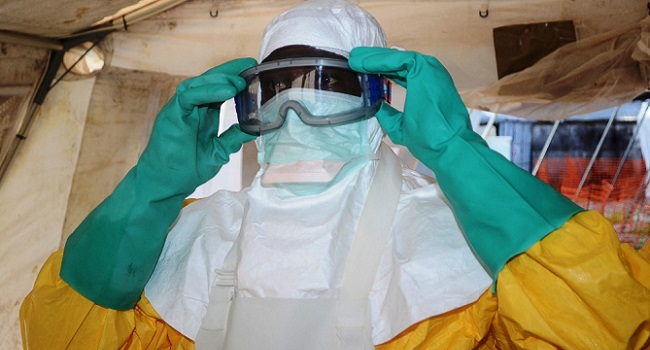
The Nigeria Centre for Disease Control (NCDC) has tightened surveillance measures at entry points in the country owing to a fresh outbreak of Ebola disease in Uganda.
Last week, the Ugandan Ministry of Health confirmed the outbreak of the disease with one death and has now followed up with forty-four contacts.
#Ebola #PublicHealth #StaySafe
Owing to the development, the NCDC in an advisory said while there is no outbreak of the disease in Nigeria, the agency is working to prevent such.
“There are no cases of Ebola virus disease in Nigeria. However, the Nigeria Centre for Disease Control and Prevention (NCDC), in collaboration with relevant Ministries, Departments, Agencies, and Partners through the National Emerging Viral Hemorrhagic Diseases (EVHD) Technical Working Group, continues to monitor disease occurrence and has initiated measures to strengthen our preparedness in the country,” the agency’s Director-General Jide Idris said in an advisory on Sunday
“These include the update of our EVD emergency contingency plan, heightened surveillance especially at the points of entry, and optimizing diagnostic capacity for EVD testing in designated laboratories in cities with international airports of entry and the National Reference Laboratory. In addition, all Lassa Fever testing laboratories can be activated to scale up testing if the need arises.”
According to the NCDC DG, there are no Ebola vaccines in Nigeria at the moment.
“There are vaccines and therapeutics available for some strains of the Ebola virus. The approved vaccine for the Zaire species (EBV) is not currently available in the country but can be obtained from the WHO Afro and does not protect against the Sudan virus,” he said.
However, the NCDC boss said, “early recognition, isolation of patients, and initiation of supportive treatment, implementing infection and control measures in health facilities and homes, tracing and monitoring of contacts, and safe burial practices, significantly reduce morbidity and the probability of death.”














+ There are no comments
Add yours